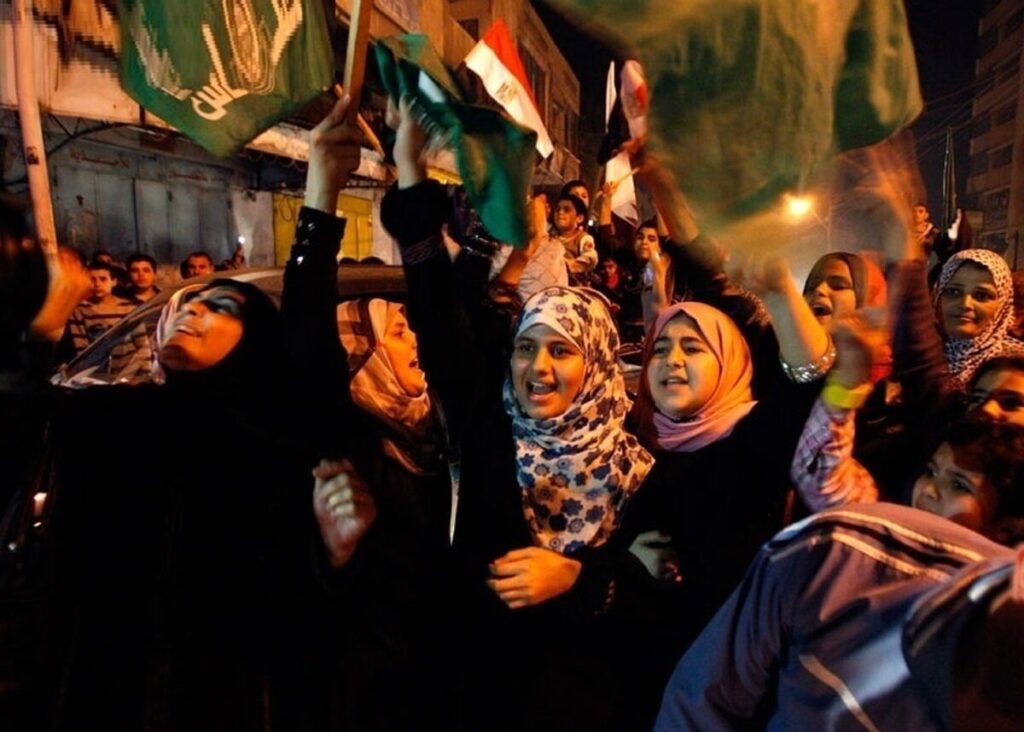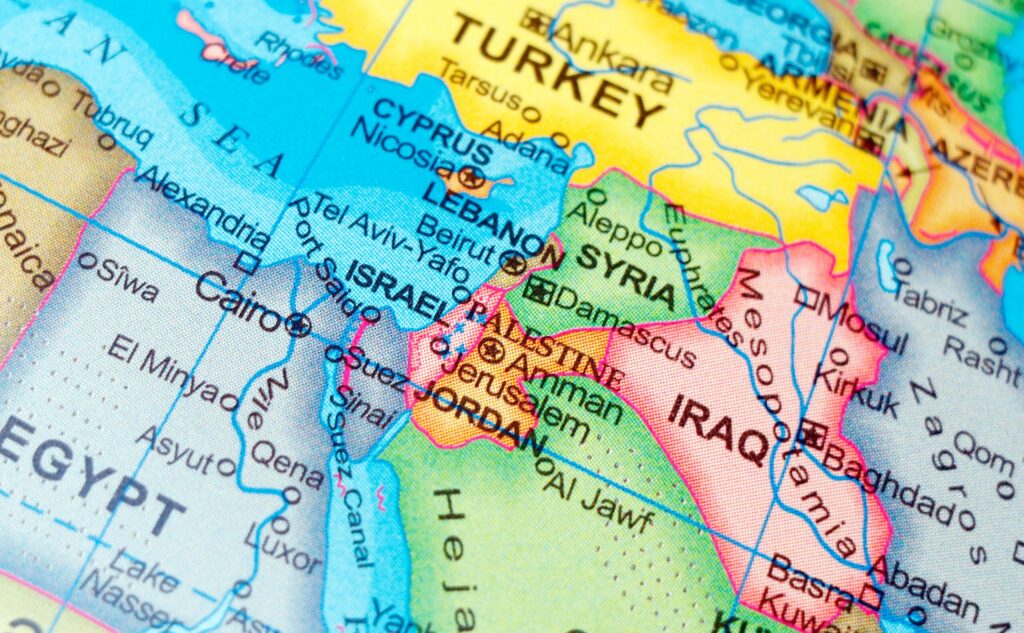UPDATES
Hamas attacks bring Gaza incursion closer/ Diplomacy with Iran
Apr 27, 2007 | AIJAC staff
Update from AIJAC
April 27, 2007
Number 04/07 #06
As readers may be aware, Hamas’ military wing on Monday broke a self-imposed 5 month truce, and took responsibility for firing rockets and mortars into Israel (rocket attacks had previously been perpetrated by other groups, though Hamas has supplied them with rockets and other assistance). While Israel has decided to refrain from a large scale response for now, these attacks are widely viewed in Israel as making it more likely that the IDF will soon make a major incursion into Gaza to deal with a massive Hamas military build-up there.
Amos Harel and Avi Issacharoff of the Israeli daily Haaretz examine the dilemmas Israeli political and military leaders faced in responding to those attacks, and why an Israeli military incursion is looking increasingly likely, given Hamas’ “ideology, its ongoing attacks and its military buildup in Gaza.” The article also deals with what Israel believes was the motive for Hamas’ Independence day attack – cover for a failed attempt to kidnap further Israeli soldiers. For their analysis of Israel’s current state of preparedness for conflict with Hamas, CLICK HERE.
Next up, American Middle East analyst Jonathan Schanzer looks at the current state of Gaza, and particularly Hamas’ record as rulers there. He points out that in their eagerness to concentrate on their military build-up and their on again, off again confrontations with Israel, they have not only failed to govern but have shown a reckless disregard for the welfare of the Palestinian population. He also looks at how this has contributed to a likely future Israeli operation in Gaza. For his full argument, CLICK HERE.
Finally, on a separate topic, Middle East diplomatic eminence grise Ambassador Dennis Ross gives his take on how to negotiate over Iran’s nuclear program – with an emphasis on sticks rather than carrots. Ross points out that very mild UN sanctions have given at least pause to some Iranian rulers, while carrots have so far been ignored, and suggests the kind of economic sticks that might work, provided Saudi Arabia, Europe and Japan are on board. For Ross’s highly experienced take on strategy for this key diplomatic crisis, CLICK HERE.
ANALYSIS: Military confrontation with Hamas in Gaza is inevitable
By Amos Harel and Avi Issacharoff
Haaretz, 25/04/2007
From Israel’s perspective, the timing of Hamas’ attack on southern Israel on Monday was problematic. With the government and army virtually paralysed by fear of the upcoming publication of the Committee’s report, Prime Minister Ehud Olmert cannot easily order a harsh reprisal in Gaza. And this time, good intelligence and the army’s preparedness foiled what was apparently another kidnapping attempt, which ostensibly enables Olmert to make do with a limited response.
Yet the premier must ask himself whether this would not be a mistake. Just as Hamas did in its kidnapping of Gilad Shalit last June, the organization, or parts of it, is signaling that all its promises of a cease-fire are nonbinding. Since Hamas agreed to the cease-fire in Gaza, more than 200 Qassam rockets have been fired at Israel from Gaza and some 50 bombs have been planted along the border fence. Hamas’ military wing was involved in many of these attacks.
On the tactical level, the lessons of Shalit’s kidnapping were learned: For instance, the army is now allowed to penetrate a few hundred meters into Gaza in order to thwart kidnappings. Yet it must be remembered that last July’s kidnapping of two soldiers along the northern border by Hezbollah was preceded by many attempted kidnappings that Israel successfully foiled; it was Israel’s muted response to these attempts that convinced Hezbollah that it would only pay a minimal price for a successful abduction.
Unlike its response to previous thwarted kidnappings, the army refrained from celebrating on Monday. This was partly due to the two successful abductions that occurred last year, but also to awareness that a major escalation in Gaza is likely relatively soon.
Olmert will remain unenthusiastic about a large-scale operation in Gaza even after the Winograd report is published. But for years, Israel’s response to Palestinian attacks has been based on one thing only: the attacks’ results. A successful kidnapping, or a Qassam rocket that causes multiple deaths, will hasten the decision to act.
Olmert is well acquainted with the situation assessment of GOC Southern Command Yoav Galant: that a military confrontation with Hamas is inevitable. The organization’s ideology, its ongoing attacks and its military buildup in Gaza all lead to this conclusion. And from Israel’s perspective, Galant believes, the sooner the better, before Hamas’ military might grows any further.
Meanwhile, the army is preparing, and on a scale that some liken to the preparations preceding the first Lebanon War in 1982. In Israel, such preparations tend to be self-fulfilling prophecies.
Hamas’ claim of responsibility for Monday’s rocket and mortar fire was unusual. Since November, it has refrained from such announcements. This time, Hamas was apparently motivated by a desire to regain its fighting image in the eyes of the Palestinian public. Its statement even exaggerated the number of rockets and missiles fired. The attack was apparently timed for Independence Day to maximize its effect.
Palestinian security officials on Monday claimed that Hamas deliberately aimed at open areas, in order to prevent a massive Israeli response, but fired enough rockets to create the impression that it is once again leading the fight and to divert attention from the failures of the new Palestinian unity government. This government has not managed to end the bloody gang wars in Gaza, nor has it ended the Hamas-Fatah rivalry: Both sides are busily arming and recruiting in preparation for renewed infighting. It seems the only thing that can save the Gazans from civil war is a large-scale Israeli military operation.
————————————————————————
Hamas’ Misrule in Gaza
Jonathan Schanzer
New York Post, April 26, 2007
Hamas, the terrorist group that Palestinians last year elected to govern their territories, is failing to govern at all.
March alone saw at least 46 kidnappings of civilians in the Gaza Strip, as well as over 25 killings of Palestinians by fellow Palestinians.
Internecine violence has gotten so bad that one human-rights activist says Gaza “has become worse than Somalia.” Yasser Abed Rabbo, an executive-committee member of the rival Palestine Liberation Organization, calls it “anarchy.”
The violence is just the tip of the iceberg in “Hamasistan.” Other troubling signs include:
International Exodus: Foreigners who came to help are starting to flee for their lives – even armed foreigners. One group of Egyptian military officers has reportedly been recalled to Cairo on account of the dangers, with the two generals who remain spending most of their time in Israel, for fear of violence.
The United Nations may even declare Gaza a “dangerous zone.” That would precipitate the evacuation of nearly all foreign nationals.
This would be disastrous for the general population: Nearly two-thirds of Gaza’s 1.4 million residents claim refugee status, and rely on the U.N. Relief and Works Agency (UNWRA) and other aid organizations.
Unsafe Streets: The Palestinian media reports that crimes, including car theft and abductions, are skyrocketing. Iranian-trained Hamas forces are battling Egyptian-trained Fatah forces, rather than policing the streets. National Security Adviser Muhammad Dahlan admits that “many young men prefer to work for clans and not the security forces.”
Last Sunday, a group calling itself the Islamic Swords of Truth, a self-appointed vice squad, claimed responsibility for bombing the Gaza Bible Society’s bookstore and two Internet cafes.
In response, Palestinians are taking the law into their own hands. In March, one of Gaza’s large clans gathered to blockade a main road in Northern Gaza to protest against the targeting of one of their shops by a vice squad. The family demanded that the government bring law and order back to the streets.
Dwindling Media Freedom: Last week, security guards broke up a peaceful media protest of the government’s inability to secure the release of Alan Johnston, the BBC journalist kidnapped more than a month ago – and injured three journalists.
A group calling itself the Tawhid and Jihad Brigades just issued a statement claiming to have executed Johnston. Foreign journalists now fear for their lives.
Health Risks: The collapse of a sewage-treatment pool in Umm al-Naser, a North Gaza village, killed three women and two toddlers and injured 25 others in March. The “sewage tsunami” submerged at least 25 homes and caused untold damages to the 3,000-person village.
Fadel Kawash, head of the Palestinian Water Authority, told the Associated Press that a number of sewage projects, including the one in Umm al-Naser, were halted when Hamas pulled funding after their electoral victory in January 2006. Said one U.N. official, “this has been a tragedy that was predicted and documented.”
Officials believe that another cesspool collapse is possible, unless prophylactic steps are soon taken.
Provocations: Hamas continues to permit provocations against Israel from Gaza – notably, the homemade Kassam missiles shot into Israel nearly every day.
Yuval Diskin, the chief of Shin Bet, Israel’s counterintelligence and internal-security service, recently warned that Israel must begin to think about thwarting a more dangerous situation in Gaza, should Hamas develop more dangerous capabilities.
Hamas is tempting Israel into a confrontation, with reckless disregard for the Palestinian population. Gaza is the most densely populated place on earth; any military incursion – like Israel’s response last year to similar Hamas provocations from Lebanon – would inflict utter devastation.
In short, Hamas has not made the transition from terrorist group to government. It is exposing Gazans to danger without providing key freedoms and services – and seems on track to produce wider internecine violence, deepening poverty and perhaps new rounds of violence with Israel.
In other words, Gaza’s suffering proves, once again, that terrorist groups, thanks to their utter indifference to human suffering, are unfit to govern.
Jonathan Schanzer, a former Treasury intelligence analyst, is policy director for the Jewish Policy Center, and author of Al Qaeda’s Armies: Middle East Affiliate Groups and the Next Generation of Terror.
————————————————————————
Squeeze Play: Approach Tehran with Sticks, Not Carrots
Dennis Ross
New Republic, April 23, 2007
Consider this scenario: The Saudis have gone nuclear. So have the Egyptians. Both countries had been signatories to the Nuclear Non- Proliferation Treaty, but that agreement is now dissolved. Riyadh and Cairo acquired their weapons from Pakistan, a Sunni ally, in response to the nuclear threat from Shia Iran. Meanwhile, Iraq continues to fester, the Israeli-Palestinian conflict is far from settled, and Iranian proxies remain firmly entrenched within Lebanon’s combustible sectarian mix — a mix that pits Sunni against Shia and just so happens to exist on Israel’s northern border. In short, all the key players in the Middle East — Sunni, Shia, Israeli — now have nuclear weapons at a moment when the simmering and, in some cases, quite open conflicts between the region’s states, sects, and ethnicities are almost too numerous to count.
If that situation sounds terrifying, it should. And it may well come to pass if Iran is allowed to go nuclear. This past December, Saudi Arabia’s foreign minister, Saud Al Faisal, declared that Riyadh, in conjunction with surrounding Gulf states, might seek to develop nuclear power. He insisted the program would be used only for peaceful purposes, but, to many, Faisal’s words sounded like a threat: Since Iran is pursuing nuclear weapons, maybe we will, too. If that happens, Egypt probably won’t be far behind. Senior Egyptian officials have told me that, if we cannot stop Iran from going nuclear, it will spell the end of the nuclear nonproliferation regime.
Needless to say, a nuclear arms race in the Middle East would greatly increase the chances of war — between Sunnis and Shia or between Israelis and Muslims — through mistake or miscalculation. For this reason alone, we must prevent Iran from acquiring nuclear weapons. The question is: How?
There seem to be two parallel realities today regarding Iran’s nuclear program. On the one hand, most of the international community appears to oppose Iran going nuclear, and the Bush administration has helped forge two U.N. Security Council resolutions (despite Russian and Chinese hesitancy) that impose limited sanctions on the Iranian nuclear and missile industries, as well as individuals and entities associated with them. Even though the sanctions were far less stringent than those the administration initially sought, they seem to have created dissonance within the Iranian elite. Criticism of Iran’s president, Mahmoud Ahmadinejad, has become much more open and far more pointed. One newspaper associated with Iranian supreme leader Ayatollah Ali Khamenei went so far as to say that Ahmadinejad was using the nuclear issue to divert attention from the failings of his government. As Undersecretary of State Nicholas Burns, the administration’s point person on the issue, put it, “We’ve roiled their government, and I think we’ve shocked them a bit.”
That’s the good news. Now the other reality: The Iranians continue to press ahead with their nuclear program. The International Atomic Energy Agency reports that Tehran, some technical difficulties notwithstanding, has already produced at least 1,000 centrifuges for enriching uranium. It is now reasonable to assume that Iran will, before the end of this year, be able to reach its aim of manufacturing 3,000 centrifuges. And, once Tehran has that many centrifuges operating efficiently, it will only need about nine months to generate sufficient fissile material for one nuclear bomb.
In other words, the Iranians may be feeling pressure, but they have yet to change their behavior. The diplomatic track is slowly having an impact on Iran’s leadership, but at a pace that continues to be outstripped by the country’s nuclear advances. The key, then, is to find a way to alter the calculus — and, therefore, the behavior of Iran’s rulers — more quickly.
Some suggest this can be done by dropping our conditions and engaging Iran. I favor this approach — but only if it is guided by an understanding that penalties, more than inducements, are the key to altering the Iranian position. When inducements have been put on the table — such as the British, French, and German offer to provide Iran with light-water nuclear reactors — the Iranians seem to have had little trouble rejecting them, and without hints of dissonance among the country’s elite. Yet, when even the threat of U.N. sanctions appeared real, we began to see signs of a much sharper internal Iranian debate. For instance, last October, as discussion of sanctions was unfolding at the United Nations, former Iranian President Ali Akbar Rafsanjani released a secret letter from Ayatollah Khomeini explaining his decision to end the war with Iraq. With Ahmadinejad and his constituency as the intended audience, an Iranian newspaper commented that the letter revealed Khomeini’s understanding that one cannot permit ideology to get in the way of a “realistic understanding of the international situation.”
Why have sticks been more effective than carrots? Because virtually all members of the Iranian elite, including moderate ones, appreciate the value of having nuclear weapons — they are a symbol of national power, they can be useful for deterring the United States, and they are seen as promoting Iranian dominance throughout the Middle East. No combination of inducements can match the value of having nuclear weapons. But the value of nuclear weapons has to be weighed against the potential cost. If the cost is international isolation and economic deprivation, the picture changes for a significant part of the Iranian elite. That elite is basically divided between the Revolutionary Guard confrontationalists represented by Ahmadinejad, the conservative but pragmatic mullahs represented by Rafsanjani, and the reformers represented by former President Mohammed Khatami. The Rafsanjani and Khatami contingents are clearly susceptible to negative external pressure; and they, in turn, can curb the influence of Ahmadinejad and his followers.
Indeed, it seems they already have; witness the recent release of the British sailors. What’s more, with an economy characterized by significant unemployment, high inflation, a plummeting stock market, declining oil production, and a diminishing of the revenue so necessary for preserving social peace, and with Ahmadinejad’s confrontational approach on the Iranian nuclear program generating internal criticism, it is probably no coincidence that Ali Larijani — Iran’s nuclear negotiator, who also happens to be close to the supreme leader — is these days evincing more hints of willingness to strike compromises.
All of which is to say that a deal may be possible, but it won’t come from chasing after the Iranians. They must know that they will pay a high price for pursuing nuclear weapons (while also seeing that the door remains open to a deal that allows for civil nuclear power and includes economic sweeteners as well as mutual security guarantees). This argues for an approach focused on squeezing Iran economically — a strategy in which the Europeans and Japanese will have to assume the lead. Both are taking some steps now, but they are capable of doing much more to cut Iran off from credits, outside investment, banks, and commerce. So long as the Europeans are providing approximately $18 billion in loan guarantees for companies doing business in Iran, the Iranians won’t be convinced they are on the brink of seeing their economic lifeline severed. Here, the Bush administration should be more aggressively exploiting the leverage of the Saudis, who, after all, see Iranian nukes as a profound threat: We should be encouraging Riyadh to use its financial clout with the Europeans, the Japanese, and even the Chinese to choke off Iranian access to the international economic system.
Most world leaders, including our allies, are desperate to prevent the United States from attacking Iran. President Bush should make it clear to them that they have the power to forestall military action — by exerting economic pressure that further opens fissures in Iran’s elite, which will in turn raise the likelihood of Ahmadinejad being forced to back down. We must convince our allies to move comprehensively, not incrementally, to ratchet up the economic pressure on Iran — and soon. The choice is theirs, but they are running out of time to make it.
Dennis Ross is counselor and Ziegler distinguished fellow at the Washington Institute for Near East Policy and author of the forthcomingStatecraft: And How to Restore America’s Standing in the World.
Tags: Iran











